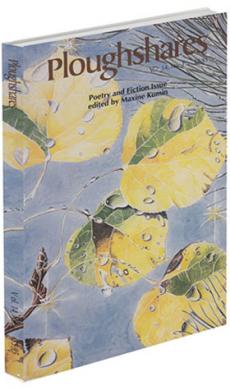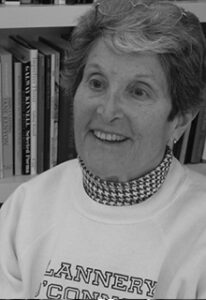Introduction
Editing a literary magazine — and this is the first time I have undertaken a project so fraught with hubris — turns out to be a little like buying birthday presents for your loved ones. You tend to get them things you really want for yourself. In making selections for this issue I have been ruled by my own passions, even while recognizing that they are eclectic, idiosyncratic, at times downright cantankerous. I know I have let a lot of talent slip past me.
Nevertheless, I feel I have found good new work. Much of it explores family relationships-parent-child, sibling-sibling, and the ways in which allegiances shift or are increasingly tested in situations involving divorce, remarriage, or cohabitation.
This issue contains a high percentage of tribal poems. On motherhood, see poems by Alicia Ostriker, Sharon Libera, and Suzanne Berger. See Teresa Cader, Donald Hall, and Gail Mazur on fathers; John Balaban on fatherhood.
For stylistic wit there are Caroline Knox's pantoum and George Starbuck's glittering inventions. On love, see Marilyn Hacker's stunning terza rima, Ruth Whitman's elegiac sestina, and Tony Hoagland's poem for lessons in seduction.
Hunger: how can I mean it, given lives starving?" Philip Booth asks in a poem that is surely about the relationships of self to others. So is Carole Oles's "Four Bones for Late March." Poems by Shirley Kaufman and David Ray, set in India, further explore this issue. Marilyn Chin and Edison Dupree also contribute insights. And on and on, for poetry is a broad umbrella; many schools and no-schools may shelter under it.
When it comes to the short story, I like fiction that has the thickness of authenticity to it. I want to experience a frisson of identification with characters who are to some degree obsessed — with staying alive during aerial bombardment, with swimming the Channel, with believing in God and God's power over an immensely chaotic universe.
I am drawn to stories that involve me in a new milieu. Mary Hedin, for instance, not only captures the terrible absolutism of adolescence but immerse me in the ritualistic mud baths of Calistoga. In a far more conventional setting Joyce Carol Oates's story, "Geese," examines this same desperately needy adolescent girl. We have all stood at lakeside feeding these tame creatures, but this time, the atmosphere is suffused with violence. Thus my horror, as the story gathers dangerous momentum, is heightened exponentially. It is interesting that on opposite coasts Hedin and Oates examine the personal dilemma of the teenaged daughter when the family constellation explodes into new configurations.
Starkey Flythe's retrospective story of friendship unto death, set on an aircraft carrier in World War II, contains tantalizing elements of a bigger than brotherly love. The saddest and most heroic aspect of this affair of the heart is the way in which perfect friendship is hallowed and preserved by death.
It is not a difficult step to move from "CV10" to Annette Jaffee's "Rosie," where in a prose style of haunting allusiveness we meet the sister destined to be the long-distance swimmer, as distinguished from the "mirror-sister, whose reflection is never frustratingly your own." It has been said a thousand times that men write about war and adventure, women, about love and loss, but Jaffee and Flythe seem almost to invert the equation. I admire the inversion.
And then there is the foster-sisterhood of the mental ward, sharply delineated by Susanna Kaysen. Kaysen writes chilling, simple declarative sentences that purport to be pitiless. But they evoke, at least in me, an enormously sympathetic shiver. And Nancy Lord does this for me, too, on two levels. I began by entering into the resourceful independence of the little boy in her story, who must create his own fantasy world by using as playthings the skinned hides of the animals his father traps for their livelihood. The child's innocence in the teeth of death is very appealing. But before long I have given myself over to his mother, trapped in a cabin in the Alaskan bush, hating the glacial cold, hating even more the long winter darkness, unable to cope except minimally.
Here, then, are the things I really want for myself. May my hungers be yours.

